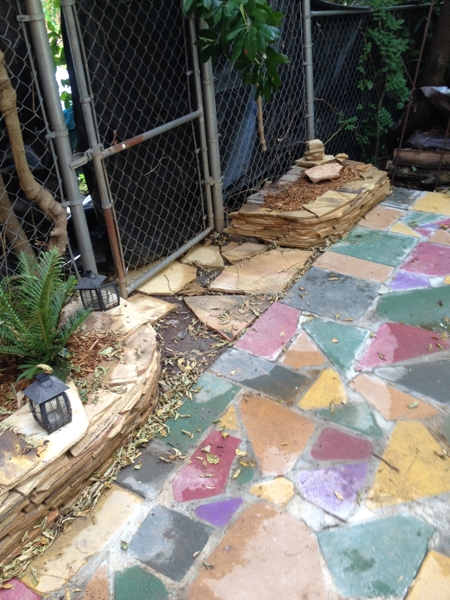So, Dream One is done.
Not really, of course, but for the moment let’s pretend that I have actually finished composing the first scene of the new opera, Seven Dreams of Falling.
It took me a moment to realize I was through. Honestly, it was like finishing a New York Times crossword puzzle that has resisted solution: you push and pull and step back and plunge in, and then finally you realize what the last few letters must be and you write them in, and then you’re done. No great “aha!” moment, no feeling of reaching a summit or crossing a finish line. You’re just done, almost unexpectedly.
Still, I’ll take what sense of accomplishment I can scrape up. Whatever its weaknesses, it’s done, and I think there are some very strong moments in it. Baritones will curse my name if they have to sing Theseus, whose opening aria takes them right to the top of their range and a little beyond, but everyone else should have a lot to please them.
What’s next? Scott is working on the text for Dreams Two, Three, and Four, and in the meantime I could begin orchestrating Dream One. I have a bit of a concern that I’ve not been thinking in orchestral terms, and that may be an issue when it comes time to get rid of the piano. However, the same was true of William Blake’s Inn, and it turned out just fine. The main thing will be deciding what orchestral forces we’ll need.
Side note: I just checked the instrumentation of Finale’s “full orchestra” template, and it seems a bit odd to me. No English horn, but an E-flat clarinet. Trumpet in C (2)?? I can understand not having saxophones, perhaps. No bass trombone. Percussion is timpani and “percussion.” None of this is a problem, of course. I just have to decide what I’m going to use and then create a new template from that.
For comparison, here is the orchestration for Anna Nicole:
- 3 flutes, including one player doubling on piccolo and alto flute
- 3 oboes, with two doubling on English horn (that’s a lot of oboe shrillness right there)
- 2 clarinets, doubling on bass
- 2 soprano saxes
- 2 bassoons, one contra
- 4 horns, 3 trumpets, 3 trombones, 1 tuba
- timpani
- percussion:vib/marimba/t.bells/wdbl(sm)/tamb/metal bar/wooden cube/guiro/tpl.bl/tgl/claves/h.bells/brake dr(lg)/SD/quica/bongo/TD/BD(lg)/susp.cym(lg)/2gongs/tam-t(lg) (I’m not unpacking that for you. TL;DR: lots of stuff to bang on)
- harp
- piano/celeste
- strings(8.8.6.6.4)
- Jazz ensemble: elec.gtr(=banjo,mand)-elec.bass(=mand)-drums.
That lineup is close to what I’ll end up with, other than not needing that many oboes or bangable items, or the jazz ensemble.
When I start orchestrating, you should expect changes in the piece, some of them quite significant. What happened with William Blake’s Inn is that when I started breaking up the piano accompaniment, I would hear opportunities for embellishments and counter-melodies that are not possible with ten fingers on a keyboard, and suddenly the piece would sound quite different. You can cover a multitude of joints with the spackling of strings.
So, onward!

